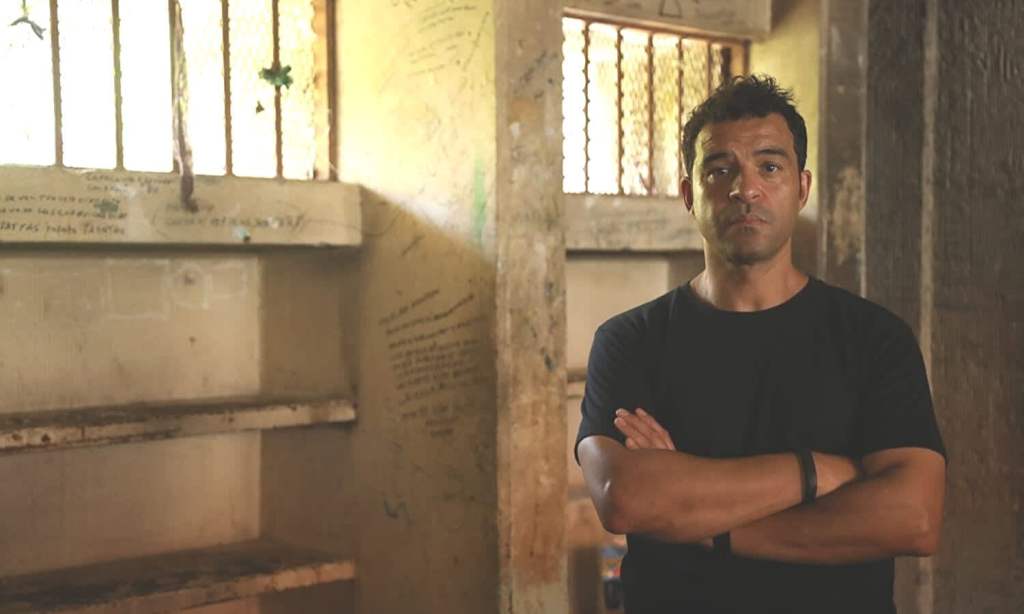In 1990, journalist Raphael Rowe was wrongly convicted of murder and robbery, spending 12 long years behind bars fighting for his innocence.
Now, he’s the host of Inside the World’s Toughest Prisons on Netflix, where he travels to different locations to explore the imprisonment process of various societies.
Visiting some of the most dangerous prisons in the world, he interviews serial killers, murderers, drug lords and rapists — spending a week in each jail, being treated as though he was any other prisoner.
Season four of the acclaimed series has just been released, and for his third season at the helm, Rowe — alongside two cameramen and a translator — show us a life that most of us will only ever see on television (hopefully).
While it is nerve inducing, eye-opening stuff, being in a jail cell is not new for Rowe.
In 1988, when he was just 19, the now 52-year-old was wrongfully convicted as one of the “M25 Three”, a gang who robbed Surrey residents in the United Kingdom. An experience which was understandably scarring.
“It’s scarred me for life,” he said in an interview with Express UK, “the psychological and physical harm of being in prison for a crime I didn’t commit.”
On December 15, 1988 in what was described as “an orgy of violence”, Peter Hurburgh and Alun Eley were dragged from their car close to the M25 London motorway by three men.
According to the reports, the victims were stripped, battered and doused with fuel, with Hurburgh dying of a heart attack while Mr Eley was robbed.
The three men then drove Hurburgh’s car along the M25, where they broke into a house and stabbed a retired businessman and his son, before driving to another house, raiding it for jewellery and credit cards.
The men arrested were Michael Davis, Randolph Johnson and Rowe — however, from the beginning, there were holes in their conviction.

Firstly, a witness account said that two of the men were white, however, all three convicted were black men.
Secondly, there was no forensic evidence to prove that any of the men were guilty.
In 1993, after serving five years in prison, the men appealed to be released.
They argued that key witnesses had struck a deal with police to help the prosecution and that documents were kept from their lawyers, however, the case was dismissed.
In March 1999, it was ruled that the men did not get a fair trial and the Criminal Cases Review Commission referred the case back to the court of appeal.
The crown argued that a breach of the European human rights convention, considered to be a “knockout blow” in favour of the three, should not lead to any presumption of an unsafe verdict. On July 18, 2000, Davis, Johnson and Rowe were freed.

During his 12 years behind bars, Rowe studied journalism which led him to his current role.
“I wouldn’t be such a successful journalist now had I not learned the skills of being a meticulous researcher because I had to research my case in the confines of a prison cell going through every document,” he told the outlet.
“It wasn’t an easy decision and one I did not take lightly. I know what it’s like in prison, I know what the individuals are like, what’s key for police and what differences can be made in the mind set of prisoners.”
“We’re always, rightly, told that we’re safe because the bad guy is locked up but it is what happens next that is key.”
Watch season four of Inside the World’s Toughest Prison’s, streaming now on Netflix.







